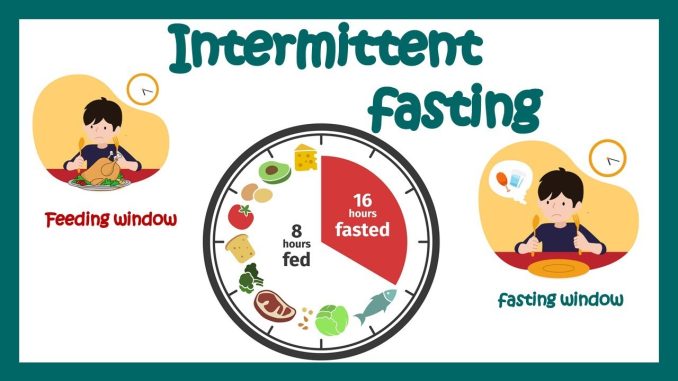
Intermittent fasting (IF) has become one of the most popular health and wellness trends in recent years. Promising benefits such as weight loss, improved metabolic health, and enhanced mental clarity, IF appeals to many looking for a structured eating pattern without the complexities of traditional dieting. But is intermittent fasting right for everyone? Understanding what IF entails, its benefits, potential risks, and how to determine if it suits your lifestyle can help you make an informed decision.
What Is Intermittent Fasting?
Intermittent fasting is an eating pattern that cycles between periods of eating and fasting. Unlike traditional diets, IF focuses more on when you eat rather than what you eat. The goal is to extend the period during which your body is in a fasted state, encouraging fat burning and cellular repair.
There are several common methods of intermittent fasting:
-
16/8 Method: Fast for 16 hours each day and eat during an 8-hour window (e.g., noon to 8 pm).
-
5:2 Diet: Eat normally five days a week and consume very low calories (about 500-600) on two non-consecutive days.
-
Eat-Stop-Eat: Fast for a full 24 hours once or twice a week.
-
Alternate-Day Fasting: Alternate between fasting days and regular eating days.
Each method has its own level of intensity and flexibility, allowing people to choose what fits their schedule best.
Potential Benefits of Intermittent Fasting
1. Weight Loss and Fat Burning
One of the most cited reasons people try IF is for weight management. By limiting the eating window, IF can reduce overall calorie intake without the need to count calories meticulously. Fasting periods increase insulin sensitivity and encourage the body to use stored fat for energy, which can lead to fat loss over time.
2. Improved Metabolic Health
Intermittent fasting has been shown to improve several metabolic markers, including insulin resistance, blood sugar levels, and cholesterol profiles. These improvements can lower the risk of type 2 diabetes, heart disease, and other metabolic disorders.
3. Cellular Repair and Longevity
During fasting, the body undergoes a process called autophagy, where old or damaged cells are broken down and recycled. This cellular “clean-up” can promote healthier aging and reduce the risk of certain diseases.
4. Mental Clarity and Focus
Many people report enhanced mental focus and clarity during fasting periods. The absence of food digestion may increase levels of brain-derived neurotrophic factor (BDNF), a protein associated with cognitive function and mood regulation.
Is Intermittent Fasting Safe?
For most healthy adults, intermittent fasting is generally safe when done responsibly. However, it is not suitable for everyone.
Who Should Avoid or Approach IF With Caution?
-
Pregnant or breastfeeding women: Nutritional needs are higher, and fasting can negatively affect both mother and baby.
-
Individuals with a history of eating disorders: Fasting may trigger unhealthy behaviors or anxiety around food.
-
People with certain medical conditions: Those with diabetes, low blood pressure, or chronic illnesses should consult a healthcare professional before starting IF.
-
Children and teenagers: They require consistent nutrition to support growth and development.
If you’re unsure, it’s always wise to talk to a doctor or registered dietitian before beginning any fasting regimen.
How to Determine if Intermittent Fasting Is Right for You
1. Assess Your Lifestyle
Consider your daily schedule, energy demands, and social commitments. IF works best when it fits naturally into your routine rather than feeling like a burden. If your work or family life involves frequent social meals or irregular hours, some IF methods might be challenging.
2. Start Slowly
If new to fasting, begin with a gentle approach, such as the 12/12 method—fasting for 12 hours and eating within a 12-hour window. Gradually increase the fasting period as you feel comfortable. This can help your body adjust and reduce side effects like irritability or fatigue.
3. Listen to Your Body
Pay attention to how you feel during fasting and eating windows. Common initial side effects include hunger pangs, headaches, or low energy. These often subside as your body adapts. However, persistent dizziness, extreme fatigue, or mood changes indicate that fasting may not be right for you.
4. Maintain Nutrient-Dense Eating
While IF focuses on timing, the quality of your food remains crucial. Aim to eat balanced meals rich in whole foods such as vegetables, lean proteins, healthy fats, and complex carbohydrates. Avoid the temptation to overeat or indulge in highly processed foods during eating windows.
Common Challenges and How to Overcome Them
-
Hunger and cravings: Drinking plenty of water, herbal teas, or black coffee during fasting can help curb hunger.
-
Social situations: Plan your fasting windows around social events when possible or allow for flexibility.
-
Energy dips: Moderate exercise and adequate sleep support energy levels during fasting.
-
Plateaus: If weight loss stalls, review portion sizes and food quality rather than extending fasting duration excessively.
Final Thoughts
Intermittent fasting can be a powerful tool for improving health, managing weight, and promoting longevity. However, it is not a one-size-fits-all solution. Your individual health status, lifestyle, and preferences should guide your decision to try IF.
If you’re considering intermittent fasting, start gradually, listen to your body, and focus on nourishing yourself with wholesome foods. When done mindfully, IF can be an effective and sustainable approach to better health.